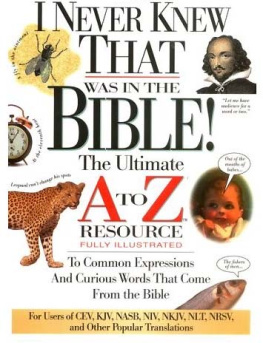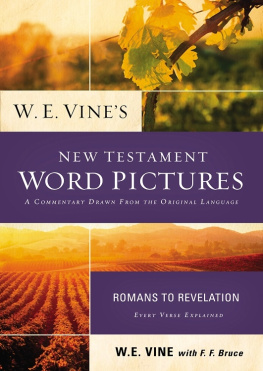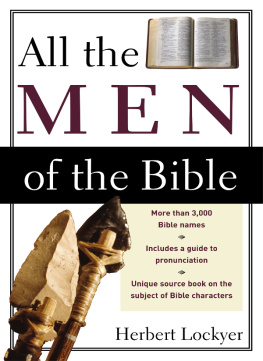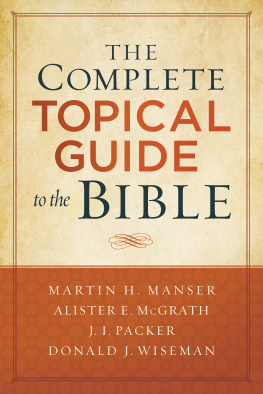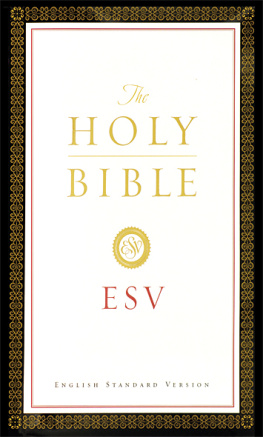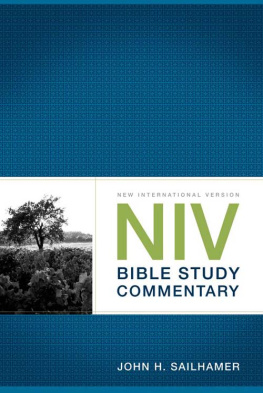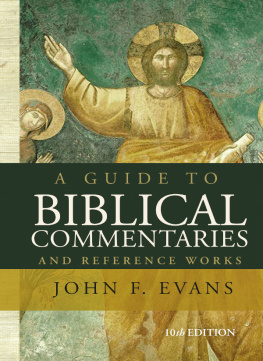The indefinite article a or an is one of the most frequently used words in the English language. In the KJV the archaic uses of a and an occur most familiarly in an hungred [hungered, Matthew 4:2; 25:35, 37, 42, 44; Luke 6:3], which appears in Matthew 12:1, 3 and Mark 2:25. This expression, in each of these cases, comes from Tyndale. The contemporary versions render an hungred as hungry (occasionally very hungry, and Matthew 4:2, NRSV , famished.)
The use of a as a worn-down proclitic form of preposition ( OED ) with a verbal noun, to denote a process or continued action, occurs in Luke 8:42, she lay a dying; Luke 9:42, as he was yet a coming; John 21:3, I go a fishing; Hebrews 11:21, when he was a dying; 1 Peter 3:20, while the ark was a preparing. These expressions also come originally from Tyndale.
The contemporary versions generally translate them by -ing forms, e.g., I am [ NLT , Im] going fishing (John 21:3, NASB , NKJV , NRSV , RSV ). Variations include the NLT of Luke 9:42, As the boy came forward; the NIV of John 21:3, Im [ NCV , I am] going out to fish; the CEV of Hebrews 11:21, when Jacob was about to die; the NASB of 1 Peter 3:20, during the construction of the ark.
The phrase in building occurs in the KJV at 1 Kings 6:7; Ezra 5:16; and John 2:20 in the passive sense of being built; and it occurs in the active sense in 1 Kings 6:12, 38; Ezra 4:4. The worn-down form of this phrase, a building, appeared in the 1611 edition of the KJV , 2 Chronicles 16:6, the timber thereof, wherewith Baasha was a building. It so remained until 1769, when Dr. Blayney deleted the a. In 1873, Dr. Scrivener, editor of the Cambridge Paragraph Bible, restored the a; but subsequent publishers of the KJV have not followed his example.
Other prepositional uses of a are in 2 Chronicles 2:18, set the people a work, and 1 Corinthians 9:7, Who goeth a warfare any time at his own charges? The NASB , NKJV , NRSV , and RSV read, make the people work and the NCV and NIV , to keep the people working. For 1 Corinthians 9:7 the NIV and RSV read, Who serves as a soldier at his own expense?; the NRSV reads, Who at any time pays the expenses for doing military service? Other adjectival uses are 2 Corinthians 10:6, having in a readiness to revenge ( NKJV , RSV , being ready to punish; NCV , NIV , are ready to punish) and Luke 9:28, about an eight days (all contemporary versions except NASB , about eight days, NASB , Some eight days.).
A glimpse of the English language in the making can be seen by comparing Acts 13:36, David fell on sleep, and 7:60, he fell asleep. The Greek verb is identical in these two cases; the difference in rendering goes back to Coverdale and the Great Bible, which had fell on slepe and fell a slepe. The NASB , NIV , NKJV , and RSV retain fell asleep; and the CEV , NCV , NLT , and NRSV translate as died. Compare also laying await and lying in wait (Acts 9:24; 20:19), rendered in the contemporary versions by the noun plot(s) or plan(s).
In the parable of the Last Judgment, Matthew 25:3146, Tyndale and Geneva had thursted (vv. 35, 42) and a thurst (vv. 37, 44); the KJV has athirst (v. 44) but otherwise (vv. 35, 37, 42) thirsty. All the contemporary versions have thirsty for all these verses.
Abhor now means to hate vehemently, to abominate, to regard with loathing or disgust. Once it had the meanings derived from the Latin abhorreo, to shrink from, to be averse to, to differ from, to be inconsistent with. We should understand in this way the dictum of Spinoza or Samuel Johnson that nature abhors a vacuum, or the line in the Te Deum, Thou didst not abhor the Virgins womb. But these meanings are now obsolete.
The KJV uses abhor forty-three times, to represent fourteen different Hebrew or Greek words. In most cases the contemporary versions have changed it. In Exodus 5:21 the KJV made our savour to be abhorred is changed to made us abhorrent ( NKJV ), made us offensive ( RSV ), brought us into bad odor ( NRSV ), made us a stench ( NIV ).
In 2 Samuel 16:21 the KJV abhorred of thy father is changed to odious to your father ( NRSV ), publicly disgraced your father ( CEV ), insulted him beyond hope of reconciliation ( NLT ). The statement, in connection with the sin of the sons of Eli, that men abhorred the offering of the L ord does not refer to a general public consequence of their misdeeds, but simply describes the sin of these two men. The NRSV reads, treated the offerings of the L ord with contempt (1 Samuel 2:17); the CEV has did not show any respect for the sacrifices; the NASB despised the offering of the L ord .
The KJV has I abhor myself (Job 42:6); the NRSV , RSV , NIV have I despise myself; the CEV and NCV render it as I hate myself. In Isaiah 66:24 an abhorring ( KJV ) means a thing that is abhorred: they shall be an abhorrence to all flesh ( NKJV , NRSV , RSV ); an abhorrence to all mankind ( NASB ); loathsome to all mankind ( NIV ); the sight will be disgusting to everyone ( CEV ).
In Psalm 10:3 the KJV has blesseth the covetous, whom the Lord abhorreth This is now translated, referring to the wicked, He blesses the greedy and renounces the L ord ( NKJV ); hate and curse you, L ord ( CEV ); curses and spurns the L ord ( NASB ); reviles the L ord ( NIV ). The Lords word to Ahaz (Isaiah 7:16), the land that thou abhorrest shall be forsaken of both her kings, ( KJV ) is the land before whose two kings you are in dread will be deserted ( NRSV ); the land that you dread will be forsaken by both her kings ( NKJV ). Other versions have the two kings you fear so much ( NLT ); You are afraid of the kings of Israel and Aram ( NCV ).
In contemporary language abide is most commonly used in the sense to hold to, to remain true to, to abide by the rules, and in the sense to tolerate (used in the negative as in I will not abide such language). But from the twelfth century onwards abide meant to wait, stay, remain, with other senses developing over the centuries.
From the thirteenth century onwards, these senses included to endure, to bear, for example in Numbers 31:23 ( KJV ), Every thing that may abide the fire, rendered in the NASB and RSV as everything that can stand the fire. The contemporary versions generally replace the KJV abide with endure in the cry of the prophets: Who can endure the day of his coming? Who can endure the heat of his anger? (Malachi 3:2; Nahum 1:6; see also Joel 2:11; Jeremiah 10:10).
In the negative use of abide meaning tolerate, as Coverdale rendered Job 19:17, Myne owne wyfe maye not abyde my breth, the KJV translates My breath is strange to my wife; the NLT , NRSV translate as my breath is repulsive to my wife, the NASB , NIV , NKJV as my breath is offensive to my wife; the CEV my breath disgusts my wife.
Tyndales rendering of John 8:43, ye cannot abyde the hearynge of my wordes, is rendered by the KJV as ye cannot hear my word; Tyndales sense of the passage is seen in the RSV , you cannot bear to hear my word and the CEV stand to hear what I am saying.
The related word bide is not used in contemporary Bible translations but Tyndale used it in Mark 10:7, And for this thingis sake shall a man leve father and mother and byde by his wyfe. The KJV reads cleave to his wife, the NKJV , NLT , NRSV , RSV , joined to his wife, the NCV , NIV , be united to his wife.
In addition to the Hebrew word for stay or remain, thirteen other Hebrew words are occasionally translated abide in the KJV . Their primary meanings are such as: go in, sojourn, whirl, encamp, bear, spend the night, stand still, stand up, sit, dwell, cleave to, remain.
The Greek words translated abide in the New Testament are not so scattered in meaning. An interesting passage is Acts 20:23, where Tyndale had Paul say concerning his journey to Jerusalem that bondes and trouble abyde me. The KJV has abide me, but added a note Or, wait for me. The NASB , NKJV , and RSV have await me; the NRSV , are waiting for me, the NIV , are facing me.
Next page
